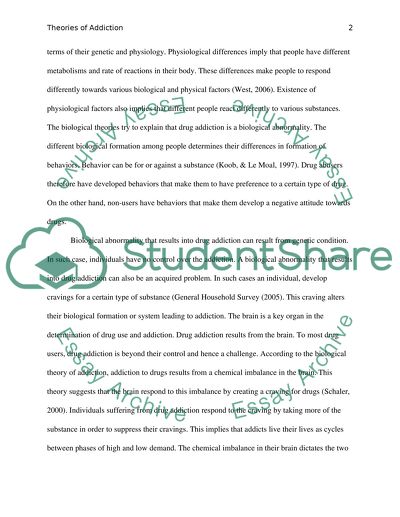Cite this document
(“The Theories of Addiction Essay Example | Topics and Well Written Essays - 2500 words”, n.d.)
Retrieved de https://studentshare.org/psychology/1395777-the-theories-of-addiction
Retrieved de https://studentshare.org/psychology/1395777-the-theories-of-addiction
(The Theories of Addiction Essay Example | Topics and Well Written Essays - 2500 Words)
https://studentshare.org/psychology/1395777-the-theories-of-addiction.
https://studentshare.org/psychology/1395777-the-theories-of-addiction.
“The Theories of Addiction Essay Example | Topics and Well Written Essays - 2500 Words”, n.d. https://studentshare.org/psychology/1395777-the-theories-of-addiction.


